Have you always wanted to trek to the Base Camp of Everest but found yourself drowning in questions like “Is this the right trek for me? “Will I be able to do it?” “How should I prepare for it?” If you have, well, worry not! We are here to answer all these questions for you, help you make an informed decision and guide you in doing the right kind of training to prepare you for this classic adventure which is every trekker’s dream.
There is no dearth of reasons why one would want to go to the foot of the tallest mountain in the world but there are also plenty of reasons why one would be apprehensive about making this journey.
Here are some of the challenges you may face and how you can prepare for them:
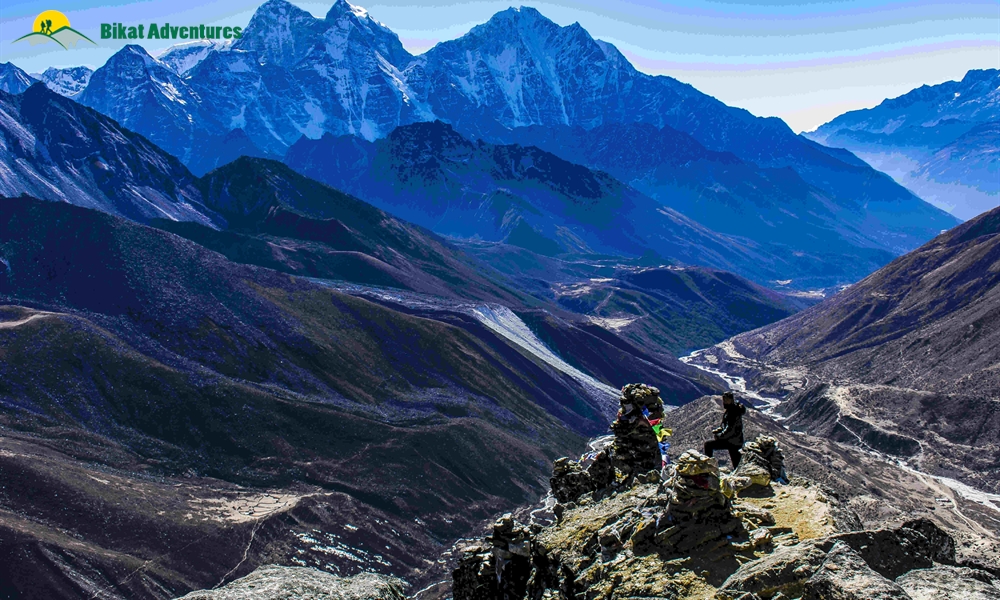
Altitude:
The trek takes you to a maximum altitude of 5,545M which is pretty darn high! EBC, in fact, is one of the highest base camps of any mountain. The altitude presents itself as one of the biggest challenges of the trek.
Preparing for this challenge:
1. Start by trekking at a lower altitude: We rank the EBC Trek at a difficulty of 5 on the Bikat Rating Scale. This means, it is a moderately difficult trek. We recommend that you have some prior experience of multi-day high-altitude treks before going for Everest Base Camp Trek. This is important for two reasons:
a) You must have heard climbers say that before they climbed an 8,000M peak, they climbed one of 5000M, then 6000M, then 7 before eventually getting to the big league. This is true for trekking as well. With every few meters of elevation gain, the challenges on the mountain change form and demand higher skills.
b) Good health at sea level does not always guarantee good health at higher altitudes. It is important to understand and be aware of how your body and mind react to each altitude because it is a very subjective matter. And reaching this understanding is better achieved when you take this journey upward in stages.
2. Acclimatisation: This one is for during the trek. If you are going here by yourself, remember to create your day-wise plan in a way that you are ascending not more than 500M a day and spending enough time at each altitude to let your body adapt to it better. Water is the best way to help your body acclimatise – so drink as much of it as possible. Remember to never skip any meals and constantly check in with yourself for any signs of discomfort and uneasiness.
(P.S.: If you would like to choose a different trek to prepare for EBC and are not sure of which one to pick, fill out our Trek Progression Chart. This will give you an idea of which difficulty level will suit you and the treks you can choose from)

Trek Distance:
EBC is a 14-day long trek with the trek distance of 120 kms from start to finish. That’s a lot of days and a lot of ground to cover in a challenging terrain. This is basically to say that it is a lot of work – physical and mental.
Preparing for this challenge:
1. Physical Training: If you are wondering what a good fitness benchmark for this trek is, here’s a rough idea.
If you can:
- Jog/Run for 5 kms in 25-30 mins
- Walk continuously for 10kms on a slight incline
- Hold your breath for 40 seconds
- Climb 30 floors without a break
- Do at least 10 push ups &
- Do 15 x 2 sets of lunges and squats
you are ready to take on this trek. If you cannot do the above, there’s no need to worry. It is important to remember that it’s all about practice. Get on a training schedule and we can assure you that you will meet these standards in a matter of a few months.
Training for the Everest Base Camp would broadly involve cardiovascular training, trekking training, strength training, and altitude training. Here is a quick description of what each of these mean and why they are important:
a) Cardiovascular Training is important as it builds muscle endurance and improves the performance of the lungs and the heart. To begin cardiovascular training you can take up biking or swimming. Some other activities that you can take up are running, walking on an inclined treadmill, stair stepping, trail running, walking on an elliptical machine, walking up and down hills and step aerobics.

b) Strength Training helps in building the upper body and lower body strength endurance and also helps in increasing physical and mental stamina. Some of the basic exercises that one can do are squats, lunges, push-ups, dips, step-ups, bench press, rows. As you begin to gain strength you can start training with free weights to take it to the next level.

c) Trekking Training is required so that you can ascend and descend on the trail easily. In some parts of the trail, the ascent might be very steep needing higher endurance. Hiking on small trails with some weight on the back helps in building confidence and strength for the trek. You can gradually increase the weight to increase your efficiency. This usually helps with the speed too.

d) Altitude Training is also very important when it comes to Everest Base Camp trek. Walking uphill with weights is a great way to train. As you keep training, keep increasing the weight until you feel it matches the weight of the backpack you will carry during the trek.

2. Mental Training: This bit will take care of itself if you have the prior experience of high-altitude that we spoke about in the previous point. A large part of getting mentally prepared for a trek is gathering the required experience and collecting as much information about the trek as possible so that very little can throw you off when you are actually on it. Here are some basic markers to check off your list when calculating if you have enough experience or not:
- Been in the Himalayan territory for at least 10-15 days (in one trip or split across various trips)
- Have been on at least 1 moderate level trek in the Himalayas or any other mountain range
- Have trekked in an altitude higher than 4000M at least once

Technical Expertise:
As thrilling as they are, any activity in the outdoors requires us to develop a set of skills for it to be a safe experience. Although Everest Base Camp Trek is not technically challenging, the altitude, the terrain and the weather need you to be aware of a few things to survive:
1. Packing: Knowing what you need (clothing and gear) on a trek and being able to pack your bag efficiently are pivotal to what your experience on this trail will be like. (hyperlink articles if any that highlight the things to pack for EBC and how to pack your bag for a trek).
2. Layering Up: The weather on these trails can get extremely unpredictable. Knowing how to dress up so you are ready for all kinds of ever-changing weather on a trail is important. You don’t want to be too hot, too cold, too wet, too stuffy at any point on the trek. This may seem commonsensical but it a skill and a very important one – one that develops with each new experience at these heights.
3. Ascending & Descending on Steep Gradients: Knowing the terrain and how best to navigate it is important to complete any trek. How to walk on boulders vs how to walk on snow require very different techniques. Similarly knowing how to walk on an upward incline as best as possible so as to not tire yourself out is a speclialised skill. And the same for descents. The strategy again changes depending on the gradient of the slope – ways to descend on a 20-degree slope vs those to come down a 45-degree slope look very different. Ascending or descending snow trails vs ice trails vs dirt trails vs those made of loose rock all need a different strategy and different equipment to help make it easy.
4. Walking in snow: There are some sections on the trail which may have enough snow that you will need to use trekking boots and crampons to get across them. Knowing how to use specialised trekking equipment, if you haven’t used it before can seem daunting but it is nothing to worry about. There is always help available when you need it.
5. Basic First Aid: Knowledge of basic first-aid always comes in handy when you are in remote locations far away from proper medical facilities. Carrying basic meds and knowing how to deal with basic injuries can be very useful for you yourself and the entire group that you are travelling with as well as anyone on the mountain.

These points are nothing you need to stress over, if you are not confident about any of the things listed above, know that it is all about practice. Also, ask for help and you shall receive! Don’t be shy of asking for assistance on a mountain – it is only together that we can get to the top :)
Do reach out to us in case you have any questions or need any help.
All the best!


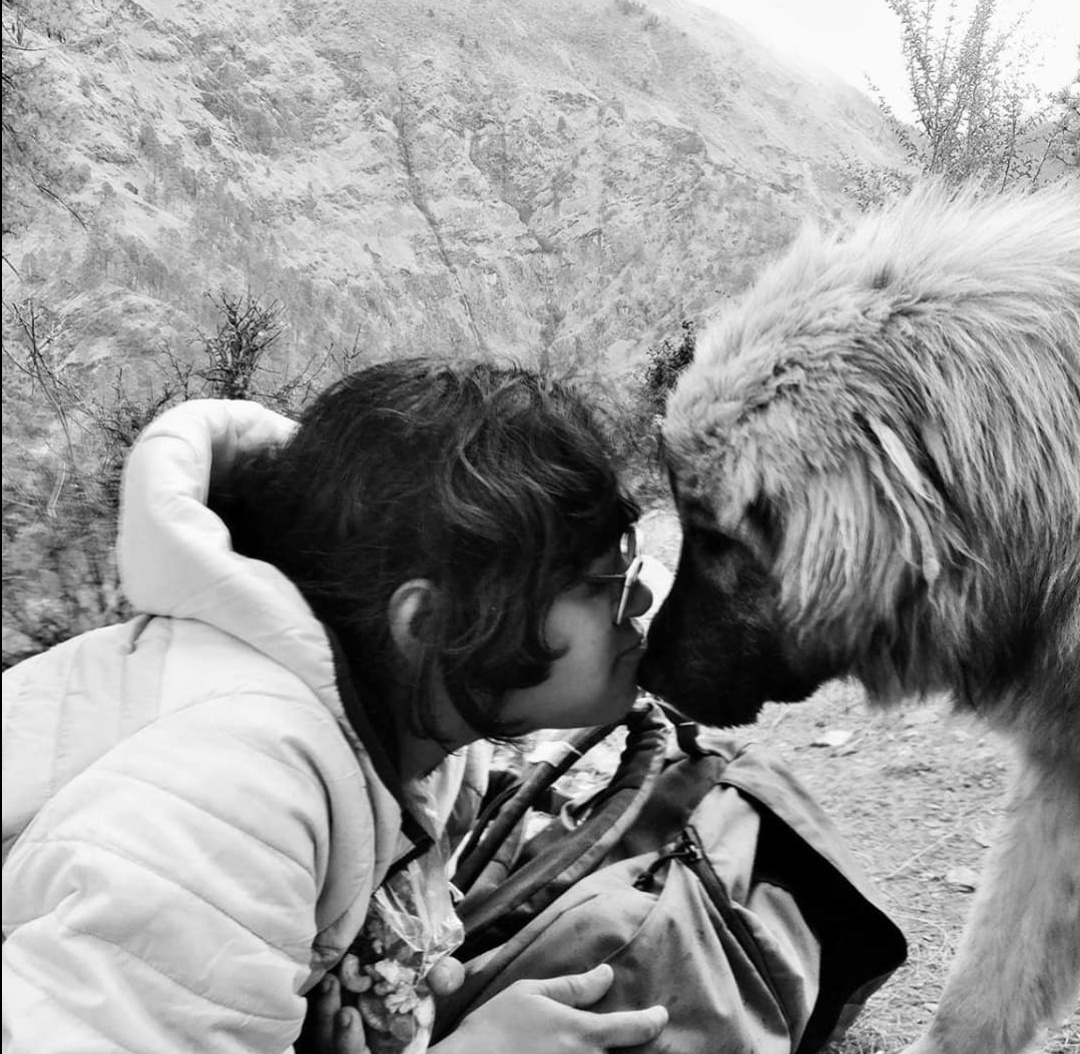
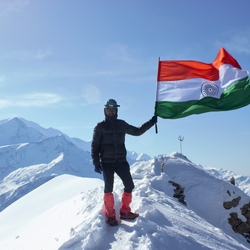
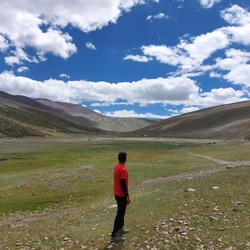
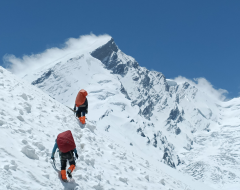
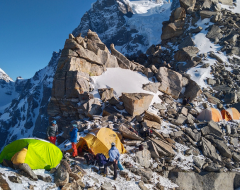
Very helpful information, Thanks. Which is the moderate level trek you suggest to do, before taking up Mt Everest base camp?
Hey Dixit R, We suggest that you should attempt the EBC trek If you have already done a trek that climbs to 4700-5000m. Treks like Brahmatal, Kedarkantha, and Pangarchulla are great options to start with. We hope to do the Everest Base Camp Trek with you very soon.